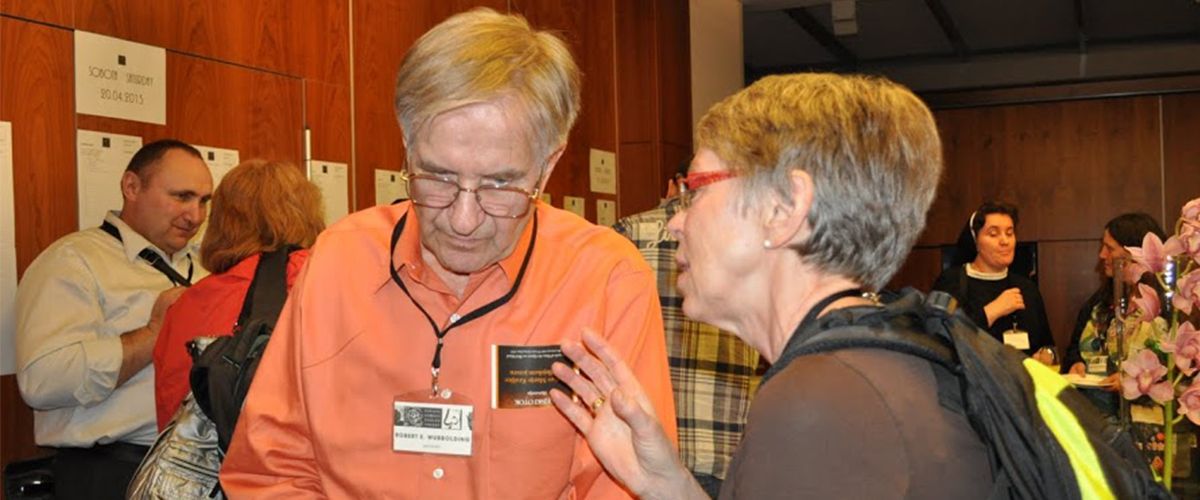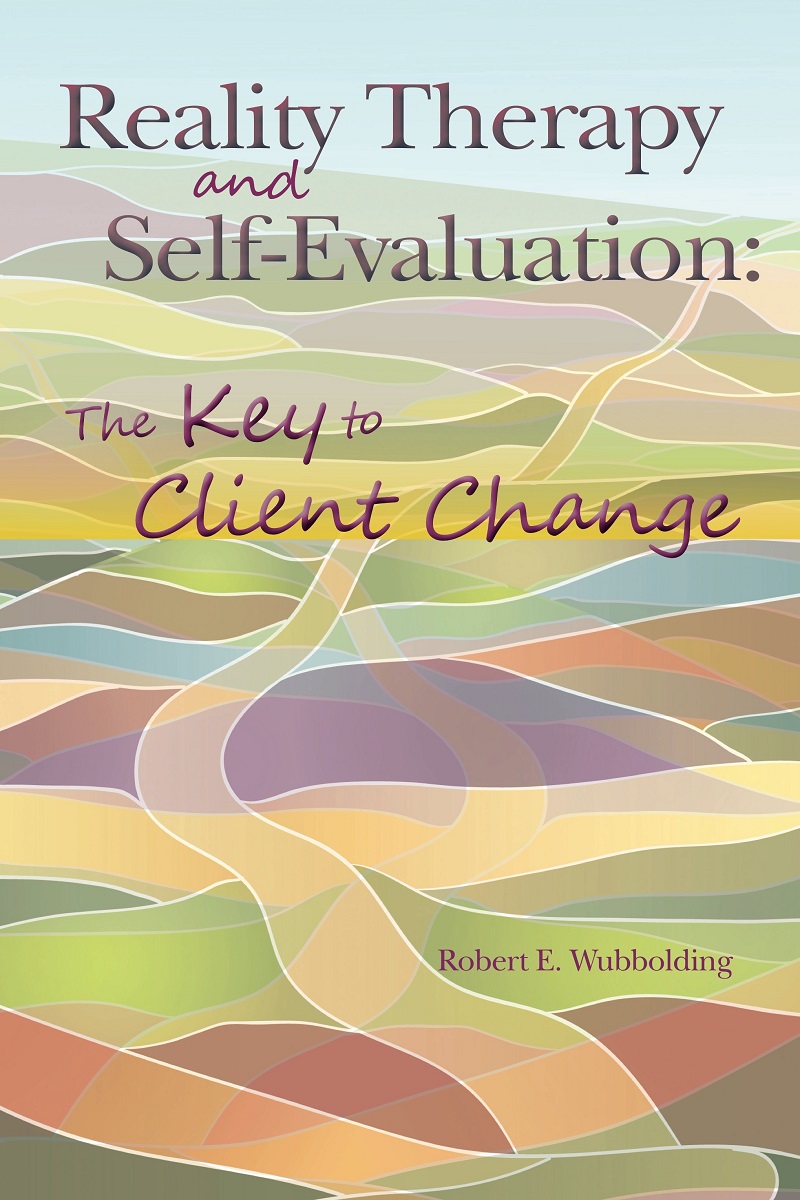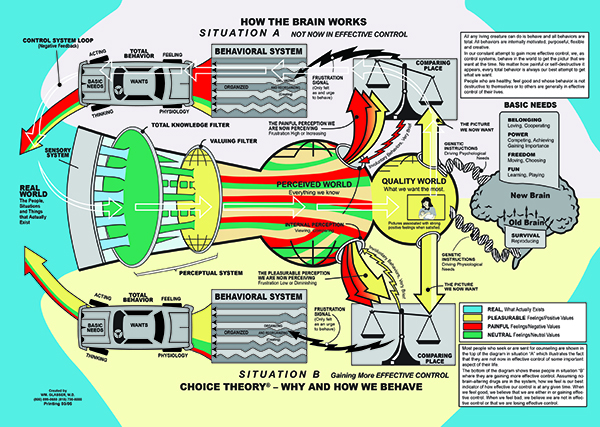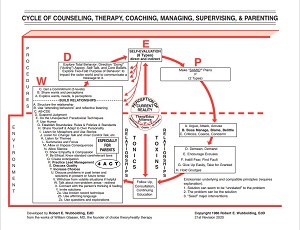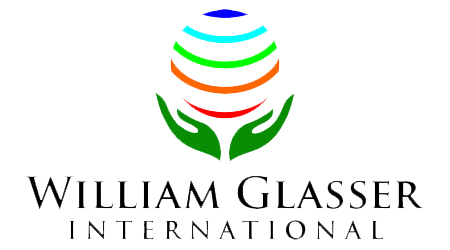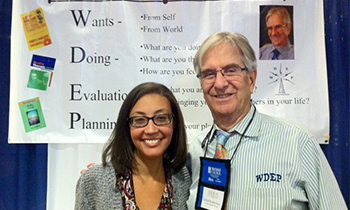
The Centre for Reality Therapy
- Workshops in Choice Theory & Reality Therapy
- Training leading to Reality Therapy Certification
- Development for Quality Schools
- Books, teaching aids and other resource materials
For details see 'Consulting Services'
Resources
Workshop Request Form
Consulting Services
Questions & Answers
- What is the difference between choice theory and reality therapy?
Answer: Choice theory is the explanation of how the human mind functions as an internal control system. It explains human motivation: that human behavior originates from five generic, universal sources called needs or genetic instructions. Human behavior is our attempt to satisfy specific pictures related to the five needs.
Reality therapy is the delivery system for choice theory. It outlines a methodology for implementing the theory. In the summer 2008, page 1 of The William Glasser Institute Newsletter Dr. & Mrs. Glasser describe the difference as, “Choice theory is the train track and reality therapy is the train.”
This difference is further explained in the following journal article: Wubbolding, R. & Brickell, J. (2007) “Frequently Asked Questions and Brief Answers: Part I.” International Journal of Reality Therapy, 27(1), 29-30.
- Is reality therapy evidence based?
Answer: First we need to summarize the definition of evidence based. The pioneer in “evidence based practice” (EBP) is Dr. David Sackett. In EBP we integrate the best clinical skill with evidence that the skills utilized are effective and based on systematic research.
One of the objections to reality therapy is that there is no research data validating its use. In my opinion, this objection is completely erroneous.
The books Reality Therapy for the 21st Century and Reality Therapy: Theories of Psychotherapy Series contain summaries of 55 research studies and references to the original sources. Moreover, research articles regularly appear in the International Journal for Choice Theory and Reality Therapy.
Additionally, Rose-Inza Kim, Director of the Korea Counseling Center and former Dean at Sogang University in Seoul, Korea has facilitated over 250 Masters Theses and Doctoral Dissertations on reality therapy. Several of these are summarized in her excellent article: Kim, R-I., and Hwang, M. (2006). “A meta-analysis of reality therapy and choice theory group programs for self-esteem and locus of control in Korea,” International Journal of Choice Theory, 1(1), 25-30. Please note, this journal has been discontinued and should not be confused with the International Journal for Choice Theory and Reality Therapy currently published under the editorship of Thomas Parish, PhD.
There still remains much research to be done using a rigid methodology for measuring change in behavior. Such research will further increase the credibility of reality therapy.
Further Reading available from our on-line store
Dr William Glasser
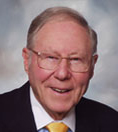 Dr William Glasser was the developer of reality therapy and choice theory. He was also notable for applying his theories to broader social issues, such as education, management, and marriage, to name a few. Glasser notably deviated from conventional psychiatrists by warning the general public about the potential detriments caused by the profession of psychiatry in its traditional form because of the common goal to diagnose a patient with a mental illness and prescribe medications to treat the particular illness when, in fact, the patient may simply be acting out of unhappiness, not a brain disorder. Glasser advocated the consideration of mental health as a public health issue.
Dr William Glasser was the developer of reality therapy and choice theory. He was also notable for applying his theories to broader social issues, such as education, management, and marriage, to name a few. Glasser notably deviated from conventional psychiatrists by warning the general public about the potential detriments caused by the profession of psychiatry in its traditional form because of the common goal to diagnose a patient with a mental illness and prescribe medications to treat the particular illness when, in fact, the patient may simply be acting out of unhappiness, not a brain disorder. Glasser advocated the consideration of mental health as a public health issue.
On August 23, 2013 Dr. William Glasser died peacefully in his home surrounded by his wife Carleen and his son Martin. He had been in a state of declining health for several years and had been retired for four years.
Glasser's chart How & Why we Behave
Dr William Glasser

Dr William Glasser was the developer of reality therapy and choice theory. He was also notable for applying his theories to broader social issues, such as education, management, and marriage, to name a few.
Read more...
